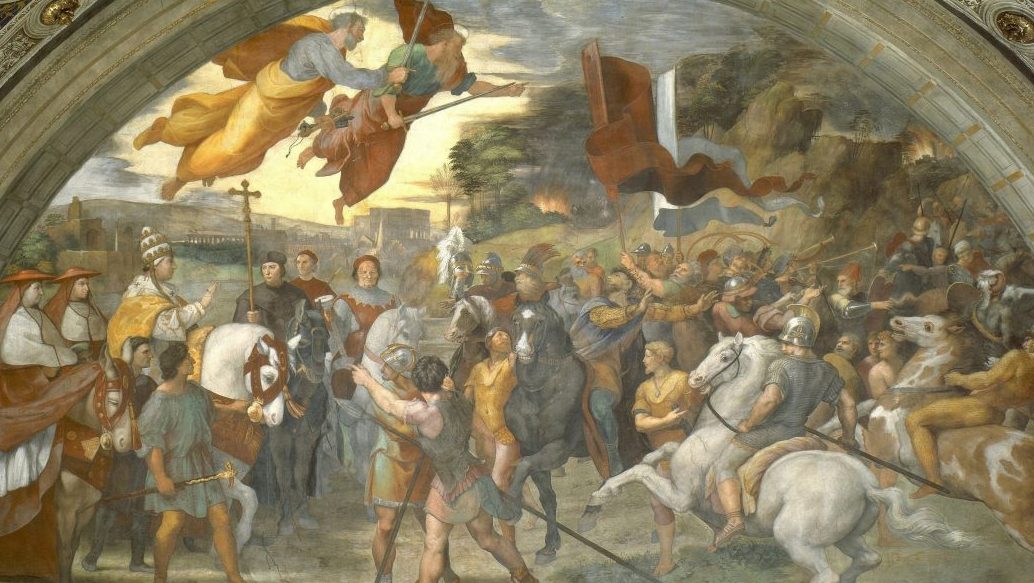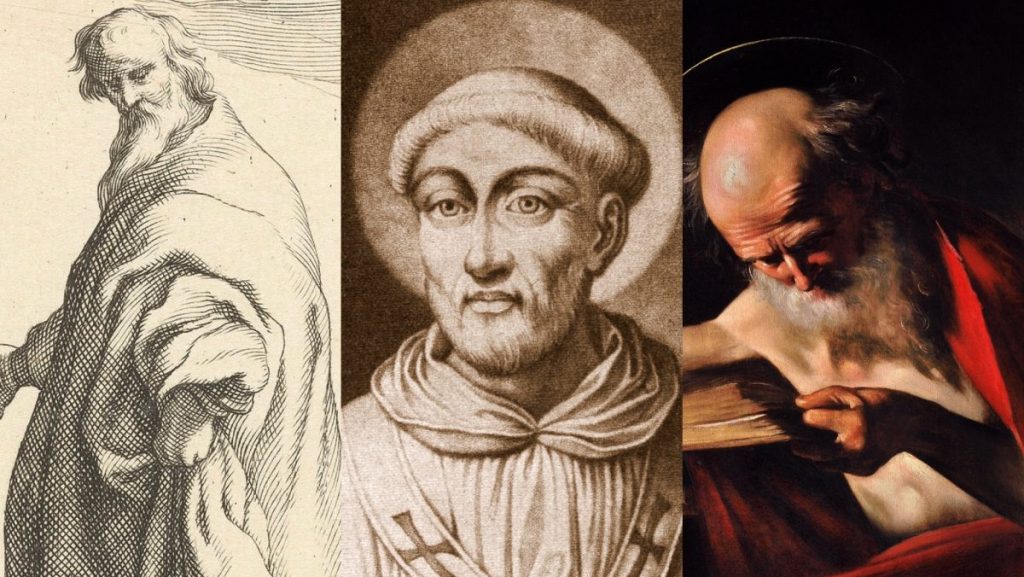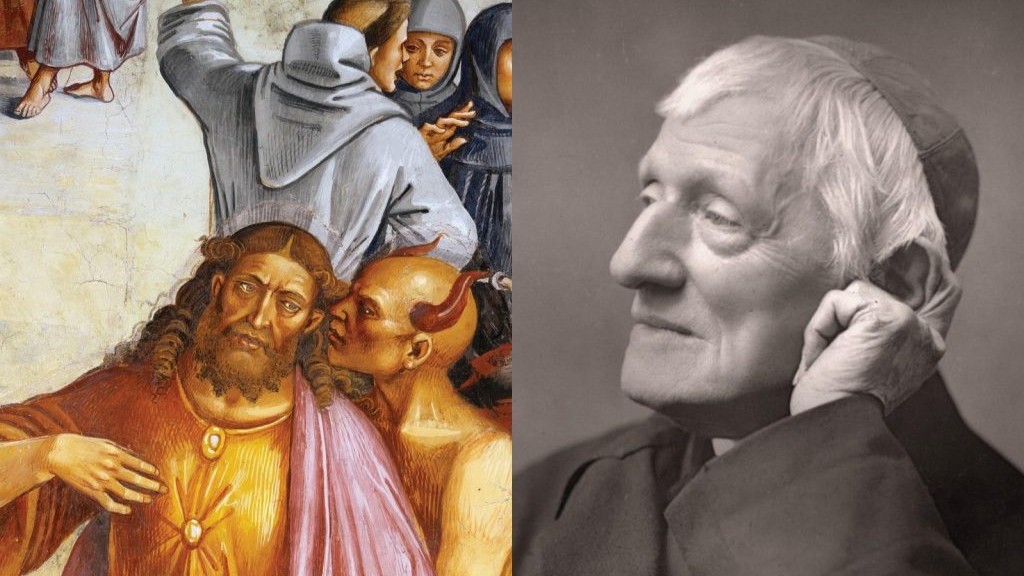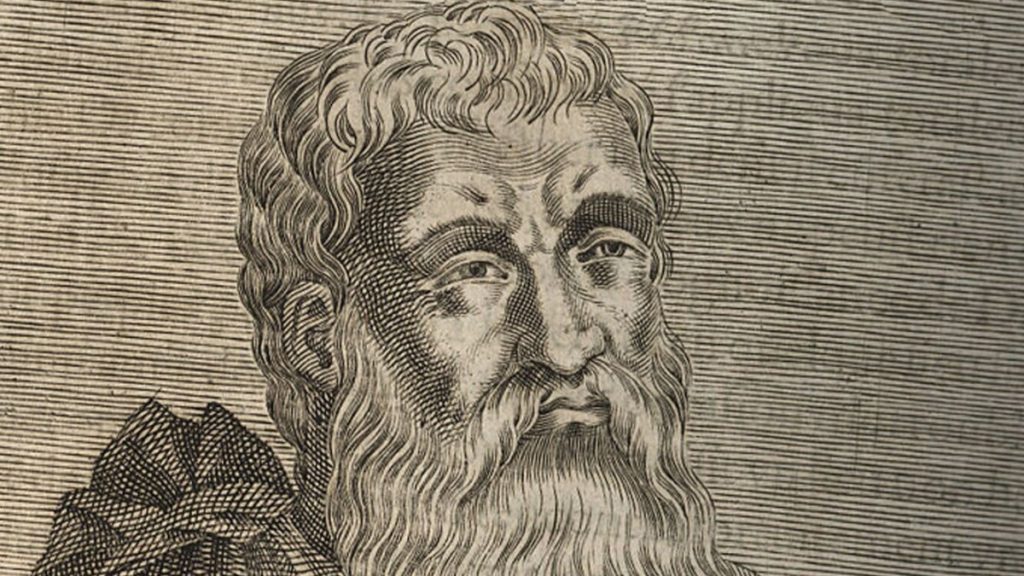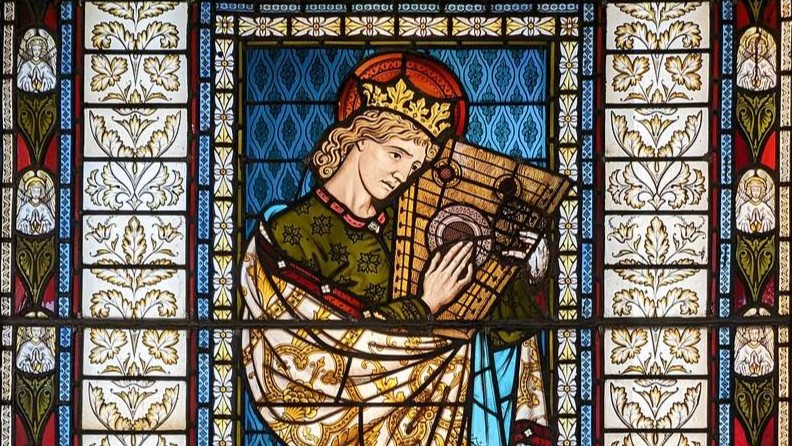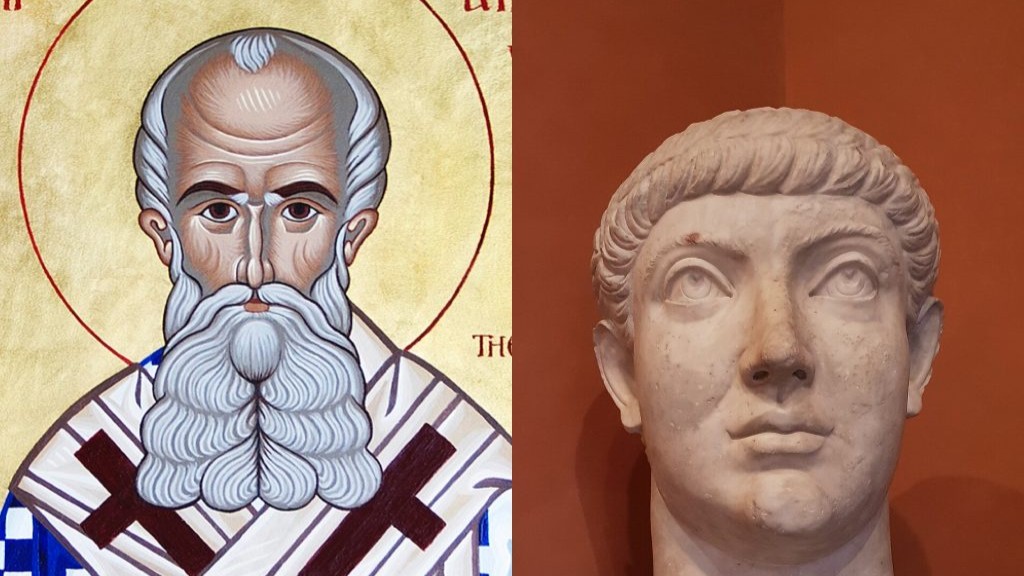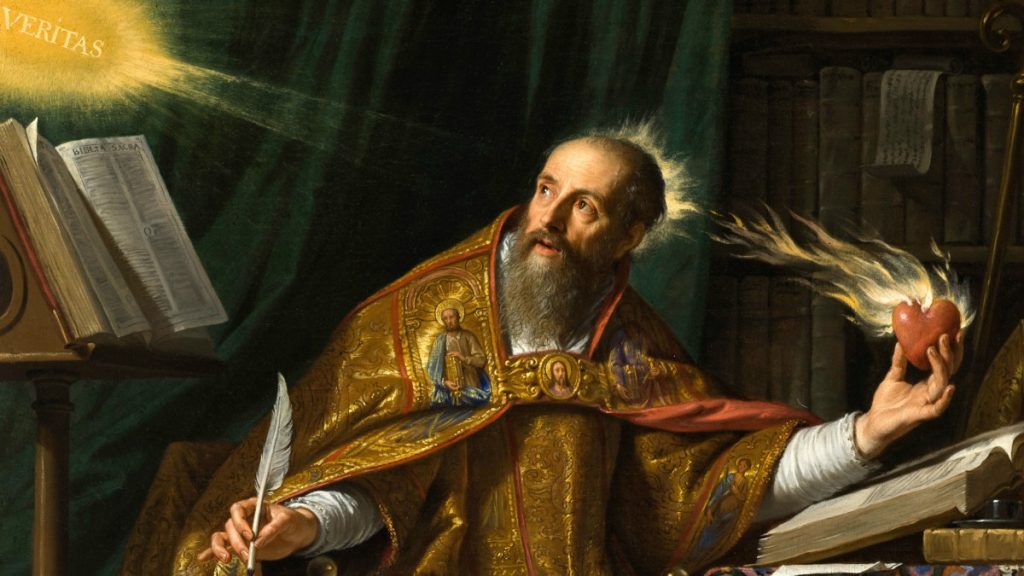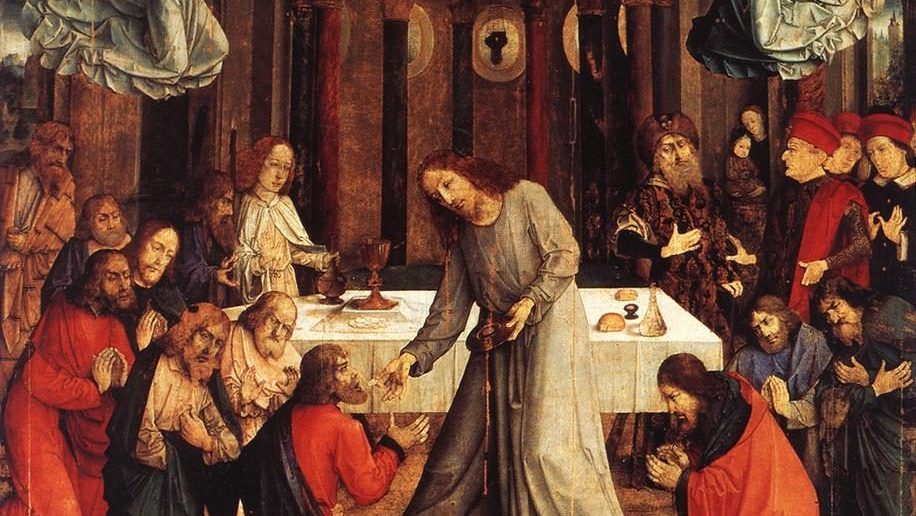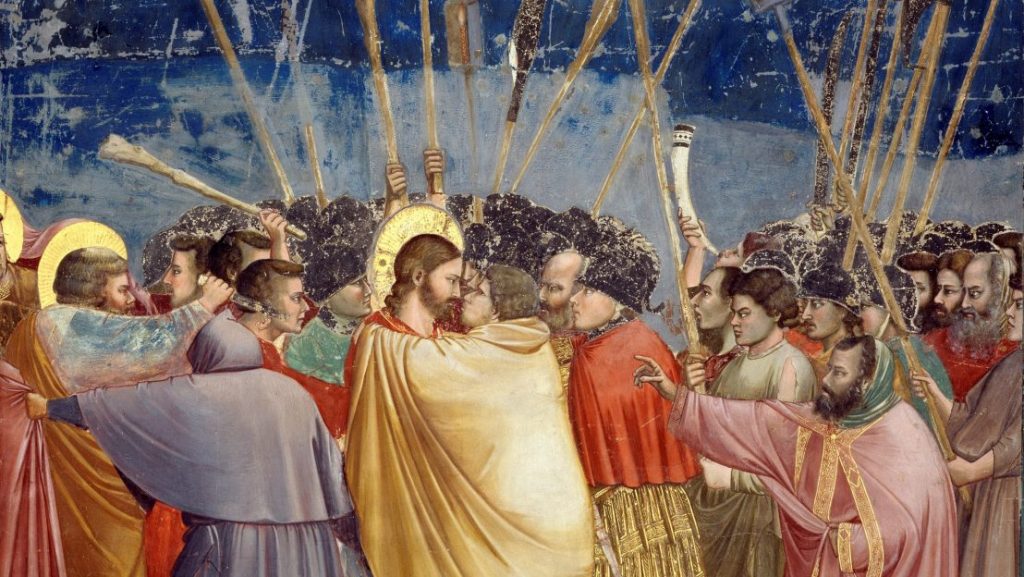(Updated July 15, 2025)
This Author Quote Archive collects pertinent quotes from the Church Father, St. Pope Leo the Great.
Next to each quote are the Topic Quote Archives in which they are included.
This Quote Archive is being continuously updated as research continues. Quotes marked with “***” have not yet been organized into their respective Topic Quote Archives.
Sermons
St. Pope Leo the Great, Sermon 3: On the Anniversary of His Elevation to the Pontificate
(§2) …For the solidity of that faith which was praised in the chief of the Apostles is perpetual: and as that remains which Peter believed in Christ, so that remains which Christ instituted in Peter. For when, as has been read in the Gospel lesson, the Lord had asked the disciples whom they believed Him to be amid the various opinions that were held, and the blessed Peter had replied, saying, “Thou art the Christ, the Son of the living God,” the Lord says, “Blessed art thou, Simon Bar-Jona, because flesh and flood hath not revealed it to thee, but My Father, which is in heaven. And I say to thee, that thou art Peter, and upon this rock will I build My church, and the gates of Hades shall not prevail against it. And I will give unto thee the keys of the kingdom of heaven. And whatsoever thou shalt bind on earth, shall be bound in heaven; and whatsoever thou shalt loose on earth, shall be loosed also in heaven” (Matt. 16:16-19).
(§3) The dispensation of Truth therefore abides, and the blessed Peter persevering in the strength of the Rock, which he has received, has not abandoned the helm of the Church, which he undertook. For he was ordained before the rest in such a way that from his being called the Rock, from his being pronounced the Foundation, from his being constituted the Doorkeeper of the kingdom of heaven, from his being set as the Umpire to bind and to loose, whose judgments shall retain their validity in heaven, from all these mystical titles we might know the nature of his association with Christ. And still today he more fully and effectually performs what is entrusted to him, and carries out every part of his duty and charge in Him and with Him, through Whom he has been glorified. And so if anything is rightly done and rightly decreed by us, if anything is won from the mercy of God by our daily supplications, it is of his work and merits whose power lives and whose authority prevails in his See. For this, dearly-beloved, was gained by that confession, which, inspired in the Apostle’s heart by God the Father, transcended all the uncertainty of human opinions, and was endued with the firmness of a rock, which no assaults could shake. For throughout the Church Peter daily says, “Thou art the Christ, the Son of the living God,” and every tongue which confesses the Lord, accepts the instruction his voice conveys. This Faith conquers the devil, and breaks the bonds of his prisoners. It uproots us from this earth and plants us in heaven, and the gates of Hades cannot prevail against it. For with such solidity is it endued by God that the depravity of heretics cannot mar it nor the unbelief of the heathen overcome it.
(§4) And so, dearly beloved, with reasonable obedience we celebrate today’s festival by such methods, that in my humble person he may be recognized and honored, in whom abides the care of all the shepherds, together with the charge of the sheep commended to him, and whose dignity is not abated even in so unworthy an heir. And hence the presence of my venerable brothers and fellow-priests, so much desired and valued by me, will be the more sacred and precious, if they will transfer the chief honor of this service in which they have deigned to take part to him whom they know to be not only the patron of this see, but also the primate of all bishops…For though the whole Church, which is in all the world, ought to abound in all virtues, yet you especially, above all people, it becomes to excel in deeds of piety, because founded as you are on the very citadel of the Apostolic Rock, not only has our Lord Jesus Christ redeemed you in common with all men, but the blessed Apostle Peter has instructed you far beyond all men. Through the same Christ our Lord.
St. Pope Leo the Great, Sermon 9: Upon the Collection
(§4) ***
But in order that your devotion, dearly beloved, may in all things be pleasing to God, we exhort you also to show due zeal in informing your presbyters of Manichees wherever they be hidden. For it is naught but piety to disclose the hiding-places of the wicked, and in them to overthrow the devil whom they serve. For against them, dearly beloved, it becomes indeed the whole world and the whole Church everywhere to put on the armor of Faith: but your devotion ought to be foremost in this work, who in your progenitors learnt the Gospel of the Cross of Christ from the very mouth of the most blessed Apostles Peter and Paul. Men must not be allowed to lie hid who do not believe that the law given through Moses, in which God is shown to be the Creator of the Universe, ought to be received: who speak against the Prophets and the Holy Ghost, dare in their damnable profanity to reject the Psalms of David which are sung through the universal Church with all reverence, deny the birth of the Lord Christ, according to the flesh, say that His Passion and Resurrection was fictitious, not true, and deprive the baptism of regeneration of all its power as a means of grace.
St. Pope Leo the Great, Sermon 22: Feast of the Nativity (450)
The origin is different but the nature like, not by intercourse with man but by the power of God was it brought about: for a Virgin conceived, a Virgin bare, and a Virgin she remained…
St. Pope Leo the Great, Sermon 35: On the Epiphany (January 6, 445)
(§4)1 ***
Strengthen your friendships with the holy angels. Enter into the “city” of God [Heb. 11:16] promised us as a home. Join yourselves with patriarchs, prophets, apostles, and martyrs. Take your joy from the same source as they. Desire their riches. Canvass for their prayers by imitating them closely. We shall have a common dignity with those to whom we have been united in fellowship.
St. Pope Leo the Great, Sermon 82: On the Feast of the Apostles Peter and Paul (June 29, 441)
(§1) …But, besides that reverence which to-day’s festival has gained from all the world, it is to be honored with special and peculiar exultation in our city, that there may be a predominance of gladness on the day of their martyrdom in the place where the chief of the Apostles met their glorious end. For these are the men, through whom the light of Christ’s gospel shone on thee, O Rome, and through whom thou, who wast the teacher of error, wast made the disciple of Truth. These are thy holy Fathers and true shepherds, who gave thee claims to be numbered among the heavenly kingdoms, and built thee under much better and happier auspices than they, by whose zeal the first foundations of thy walls were laid: and of whom the one that gave thee thy name defiled thee with his brother’s blood [the murder of Remus by Romulus, the traditional founders of Rome]. These are they who promoted thee to such glory, that being made a holy nation, a chosen people, a priestly and royal state [1 Pet. 2:9], and the head of the world through the blessed Peter’s holy See thou didst attain a wider sway by the worship of God than by earthly government. For although you were increased by many victories, and didst extend thy rule on land and sea, yet what thy toils in war subdued is less than what the peace of Christ has conquered…
(§3) For when the twelve Apostles, after receiving through the Holy Ghost the power of speaking with all tongues, had distributed the world into parts among themselves, and undertaken to instruct it in the Gospel, the most blessed Peter, chief of the Apostolic band, was appointed to the citadel of the Roman empire, that the light of Truth which was being displayed for the salvation of all the nations, might spread itself more effectively throughout the body of the world from the head itself. What nation had not representatives then living in this city; or what peoples did not know what Rome had learnt? Here it was that the tenets of philosophy must be crushed, here that the follies of earthly wisdom must be dispelled, here that the cult of demons must be refuted, here that the blasphemy of all idolatries must be rooted out, here where the most persistent superstition had gathered together all the various errors which had anywhere been devised.
(§4) To this city then, most blessed Apostle Peter, thou dost not fear to come, and when the Apostle Paul, the partner of thy glory, was still busied with regulating other churches, didst enter this forest of roaring beasts, this deep, stormy ocean with greater boldness than when thou didst walk upon the sea…
Letters
St. Pope Leo the Great, Letter 9: To Dioscorus, Bishop of Alexandria (June 21, 445?)
For since the most blessed Peter received the headship of the Apostles from the Lord, and the church of Rome still abides by His institutions, it is wicked to believe that His holy disciple Mark, who was the first to govern the church of Alexandria, formed his decrees on a different line of tradition: seeing that without doubt both disciple and master drew but one Spirit from the same fount of grace, and the ordained could not hand on aught else than what he had received from his ordainer. We do not therefore allow it that we should differ in anything, since we confess ourselves to be of one body and faith, nor that the institutions of the teacher should seem different to those of the taught.
St. Pope Leo the Great, Letter 10: To the Bishops of the Province of Vienne (445)
(§1) Our Lord Jesus Christ, Savior of mankind, instituted the observance of the Divine religion which He wished by the grace of God to shed its brightness upon all nations and all peoples in such a way that the Truth, which before was confined to the announcements of the Law and the Prophets, might through the Apostles’ trumpet blast go out for the salvation of all men, as it is written: “Their sound has gone out into every land, and their words into the ends of the world” (Ps. 19:4). But this mysterious function the Lord wished to be indeed the concern of all the apostles, but in such a way that He has placed the principal charge on the blessed Peter, chief of all the Apostles; and from him as from the Head wishes His gifts to flow to all the body, so that anyone who dares to secede from Peter’s solid rock may understand that he has no part or lot in the divine mystery. For He wished him who had been received into partnership in His undivided unity to be named what He Himself was, when He said: “Thou art Peter, and upon this rock I will build My Church” (Matt. 16:18), that the building of the eternal temple by the wondrous gift of God’s grace might rest on Peter’s solid rock: strengthening His Church so surely that neither could human rashness assail it nor the gates of hell prevail against it. But this most holy firmness of the rock, reared, as we have said, by the building hand of God, a man must wish to destroy in over-weaning wickedness when he tries to break down its power, by favoring his own desires, and not following what he received from men of old: for he believes himself subject to no law, and held in check by no rules of God’s ordinances and breaks away, in his eagerness for novelty, from your use and ours, by adopting illegal practices, and letting what he ought to keep fall into abeyance.
(§2) But with the approval, as we believe, of God, and retaining towards you the fullness of our love which the Apostolic See always, as you remember, expends upon you, holy brethren we are striving to correct these things by mature counsel, and to share with you the task of setting your churches in order, not by innovations but by restoration of the old; that we may persevere in the accustomed state which our fathers handed down to us, and please our God through the ministry of a good work by removing the scandals of disturbances. And so we would have you recollect, brethren, as we do, that the Apostolic See, such is the reverence in which it is held, has times out of number been referred to and consulted by the priests of your province as well as others, and in the various matters of appeal, as the old usage demanded, it has reversed or confirmed decisions. And in this way “the unity of the spirit in the bond of peace” (Eph. 4:3) has been kept, and by the interchange of letters, our honorable proceedings have promoted a lasting affection; for “seeking not our own but the things of Christ” (Phil. 2:21), we have been careful not to do despite to the dignity which God has given both to the churches and their priests. But this path which with our fathers has been always so well kept to and wisely maintained, Hilary has quitted, and is likely to disturb the position and agreement of the priests by his novel arrogance: desiring to subject you to his power in such a way as not to suffer himself to be subject to the blessed Apostle Peter, claiming for himself the ordinations of all the churches throughout the provinces of Gaul, and transferring to himself the dignity which is due to metropolitan priests; he diminishes even the reverence that is paid to the blessed Peter himself with his proud words: for not only was the power of loosing and binding given to Peter before the others, but also to Peter more especially was entrusted the care of feeding the sheep [John 21:15-17]. Yet any one who holds that the headship must be denied to Peter, cannot really diminish his dignity, but is puffed up with the breath of his pride, and plunges himself into the lowest depth…
(§7) …For it is but fair, brethren, that the ordinances of antiquity should be restored, seeing that he who claimed for himself the ordinations of a province for which he was not responsible, has been shown in a similar way in the present case also to have acted so that, as he has on more than one occasion brought on himself sentence of condemnation by his rash and insolent words, he may now be kept by our command in accordance with the clemency of the Apostolic See [“as loyalty to the Apostolic See demands”] to the priesthood of his own city alone. He is not to be present then at any ordination: he is not to ordain because, conscious of his deserts, when he was required to answer for his action, he trusted to make good his escape by disgraceful flight, and has put himself out of Apostolic communion, of which he did not deserve to be a partaker…
(§9) Wherefore, because our desire seems very different to this (for we are anxious that the settled state of all the Churches and the harmony of the priests should be maintained) exhorting you to unity in the bond of love, we both entreat, and consistently with our affection admonish you, in the interests of your peace and dignity, to keep what has been decreed by us at the inspiration of God and the most blessed Apostle Peter, after sifting and testing all the matters at issue, being assured that what we are known to have decided in this way is not so much to our own advantage as to yours…For we acknowledge that it can only redound to our credit, if the diligence of the Apostolic See be kept unimpaired among you, and if in our maintenance of Apostolic discipline we do not allow what belongs to your position to fall to the ground through unscrupulous aggressions.
St. Pope Leo the Great, Letter 14: To Anastasius, Bishop of Thessalonica (445)
(§1) If with true reasoning you perceived all that has been committed to you, brother, by the blessed apostle Peter’s authority, and what has also been entrusted to you by our favor, and would weigh it fairly, we should be able greatly to rejoice at your zealous discharge of the responsibility imposed on you.
(§2) …Do but read, brother, our pages with care, and peruse all the letters sent by holders of the Apostolic See to your predecessors, and you will find injunctions either from me or from my predecessors on that in which we learn you have presumed…
(§10) …For the cementing of our unity cannot be firm unless we be bound by the bond of love into an inseparable solidity: because “as in one body we have many members, but all the members have not the same office; so we being many are one body in Christ, and all of us members one of another” (1 Cor. 12:12). The connection of the whole body makes all alike healthy, all alike beautiful: and this connection requires the unanimity indeed of the whole body, but it especially demands harmony among the priests. And though they have a common dignity, yet they have not uniform rank; inasmuch as even among the blessed Apostles, notwithstanding the similarity of their honorable estate, there was a certain distinction of power, and while the election of them all was equal, yet it was given to one [Peter] to take the lead of the rest. From which model has arisen a distinction between bishops also, and by an important ordinance it has been provided that everyone should not claim everything for himself: but that there should be in each province one whose opinion should have the priority among the brethren: and again that certain whose appointment is in the greater cities should undertake a fuller responsibility, through whom the care of the universal Church should converge towards Peter’s one seat, and nothing anywhere should be separated from its Head. Let not him then who knows he has been set over certain others take it ill that someone has been set over him, but let him himself render the obedience which he demands of them: and as he does not wish to bear a heavy load of baggage, so let him not dare to place on another’s shoulders a weight that is insupportable. For we are disciples of the humble and gentle Master who says: “Learn of Me, for I am gentle and humble of heart, and ye shall find rest for your souls. For My yoke is easy and My burden light” (Matt. 11:29-30). And how shall we experience this, unless this too comes to our remembrance which the same Lord says: “He that is greater among you, shall be your servant. But he that exalts himself, shall be humbled: and he that humbles himself, shall be exalted” (Matt. 23:11-12)…
(§12) But if in that which you believed necessary to be discussed and settled with the brethren, their opinion differs from your own wishes, let all be referred to us, with the minutes of your proceedings attested, that all ambiguities may be removed, and what is pleasing to God decided. For to this end we direct all our desires and pains, that what conduces to our harmonious unity and to the protection of discipline may be marred by no dissension and neglected by no slothfulness. Therefore, dearly beloved brother, you and those our brethren who are offended at your extravagant conduct (though the matter of complaint is not the same with all), we exhort and warn not to disturb by any wrangling what has been rightfully ordained and wisely settled. Let none “seek what is his own, but what is another’s,” as the Apostle says: “Let each one of you please his neighbor for his good unto edifying” (Rom. 15:2; Phil. 2:4). For the cementing of our unity cannot be firm unless we be bound by the bond of love into an inseparable solidity: because “as in one body we have many members, but all the members have not the same office; so we being many are one body in Christ, and all of us members one of another” (1 Cor. 12:12). The connection of the whole body makes all alike healthy, all alike beautiful; and this connection requires the unanimity indeed of the whole body, but it especially demands harmony among the priests. And though they have a common dignity, yet they have not uniform rank; inasmuch as even among the blessed Apostles, notwithstanding the similarity of their honorable estate, there was a certain distinction of power, and while the election of them all was equal, yet it was given to one [St. Peter] to take the lead of the rest. From which model has arisen a distinction between bishops also, and by an important ordinance it has been provided that every one should not claim everything for himself, but that there should be in each province one whose opinion should have the priority among the brethren; and again that certain whose appointment is in the greater cities should undertake a fuller responsibility, through whom the care of the universal Church should converge towards Peter’s one seat, and nothing anywhere should be separated from its Head. Let not him then who knows he has been set over certain others take it ill that some one has been set over him, but let him himself render the obedience which he demands of them; and as he does not wish to bear a heavy load of baggage, so let him not dare to place on another’s shoulders a weight that is insupportable. For we are disciples of the humble and gentle Master who says: “Learn of Me, for I am gentle and humble of heart, and ye shall find rest for your souls. For My yoke is easy and My burden light” (Matt. 11:29-30). And how shall we experience this, unless this too comes to our remembrance which the same Lord says: “He that is greater among you, shall be your servant. But he that exalts himself, shall be humbled; and he that humbles himself, shall be exalted” (Matt. 23:11-12).
St. Pope Leo the Great, Letter 15: To Bishop Turribius (445)
And because through the transgression of the first man the whole stock of the human race was tainted, no one can be set free from the state of the old Adam save through Christ’s sacrament of baptism, in which there are no distinctions between the re-born, as says the Apostle: “For as many of you as were baptized in Christ did put on Christ: there is neither Jew nor Greek: there is neither bond nor free: there is neither male nor female: for you are all one in Christ Jesus” (Gal. 3:27-28).
St. Pope Leo the Great, Letter 28: To Flavian of Constantinople, “The Tome” (449)
But when our Lord and Savior Himself would instruct His disciples’ faith by His questionings, He said, “Whom do men say that I, the Son of Man, am?” And when they had put on record the various opinions of other people, He said, “But you, whom do you say that I am?” Me, that is, who am the Son of Man, and whom you see in the form of a slave, and in true flesh, whom do you say that I am? Whereupon blessed Peter, whose divinely inspired confession was destined to profit all nations, said, “Thou art Christ, the Son of the living God” (Matt. 16:13-16). And not undeservedly was he pronounced blessed by the Lord, drawing from the chief corner-stone the solidity of power which his name also expresses, he, who, through the revelation of the Father, confessed Him to be at once Christ and Son of God: because the receiving of the one of these without the other was of no avail to salvation, and it was equally perilous to have believed the Lord Jesus Christ to be either only God without man, or only man without God.
St. Pope Leo the Great, Letter 45: To Pulcheria Augusta
(§2)And they indeed, who were sent, and one of whom, escaping the violence of the bishop of Alexandria who claims everything for himself, faithfully reported to us what took place in the Synod, opposed, as it became them, what I will call the frenzy not the judgment of one man, protesting that those things which were being carried through by violence and fear could not reverse the mysteries of the Church and the Creed itself composed by the Apostles, and that no injuries could sever them from that Faith which they had brought fully set forth and expounded from the See of the blessed Apostle Peter to the holy synod…
(§3) And that we may be worthy to obtain this, let your well-tried faith and protection, which has always helped the Church in her labors, deign to advance our petition with our most clement Prince, under a special commission so to act from the blessed Apostle Peter…
Ceretius, Salonius, and Veranus (three Gallic Bishops), Letter to St. Pope Leo the Great (Letter 68 in St. Pope Leo the Great)
(§1) …We acknowledge frankly, most blessed pope, with what singular loving-kindness you have imparted to us the innermost thoughts of your breast, by the efficacy of which you secure the safety of others: and while you extract the old Serpent’s infused poison from the hearts of others, standing as it were on the watch-tower of Love, with Apostolic care and watchfulness you cry aloud, lest the enemy come on us unawares and off our guard, lest careless security expose us to attack, O holy Lord, most blessed father and pope, most worthy of the Apostolic See. Moreover we, who specially belong to you, are filled with a great and unspeakable delight, because this special statement of your teaching is so highly regarded wherever the Churches meet together, that the unanimous opinion is expressed that the primacy of the Apostolic See is rightfully there assigned, from whence the oracles of the Apostolic Spirit still receive their interpretations.
(§2) …May Christ the Lord long keep your eminence mindful of our humility, O holy Lord, most blessed father and pope most worthy of the Apostolic See.
St. Pope Leo the Great, Letter 105: To Pulcheria Augusta (445)
Let him realize what a man he has succeeded, and expelling all the spirit of pride let him imitate Flavian’s faith, Flavian’s modesty, Flavian’s humility, which has raised him right to a confessor’s glory. If he will shine with his virtues, he will merit all praise, and in all quarters he will win an abundance of love not by seeking human advancement but by deserving Divine favor. And by this careful course I promise he will bind my heart also to him, and the love of the Apostolic See, which we have ever bestowed on the church of Constantinople, shall never be violated by any change. Because if sometimes rulers fall into errors through want of moderation, yet the churches of Christ do not lose their purity. But the bishops’ assents, which are opposed to the regulations of the holy canons composed at Nicaea in conjunction with your faithful Grace, we do not recognize, and by the blessed Apostle Peter’s authority we absolutely dis-annul in comprehensive terms, in all ecclesiastical cases obeying those laws which the Holy Ghost set forth by the 318 bishops for the pacific observance of all priests in such sort that even if a much greater number were to pass a different decree to theirs, whatever was opposed to their constitution would have to be held in no respect.
St. Pope Leo the Great, Letter 108: To Theodore, Bishop of Forum Julii
(§2) The manifold mercy of God so assists men when they fall, that not only by the grace of baptism but also by the remedy of penitence is the hope of eternal life revived, in order that they who have violated the gifts of the second birth, condemning themselves by their own judgment, may attain to remission of their crimes, the provisions of the Divine Goodness having so ordained that God’s indulgence cannot be obtained without the supplications of priests. For the Mediator between God and men, the Man Christ Jesus, has transmitted this power to those that are set over the Church that they should both grant a course of penitence to those who confess, and, when they are cleansed by wholesome correction admit them through the door of reconciliation to communion in the sacraments. In which work assuredly the Savior Himself unceasingly takes part and is never absent from those things, the carrying out of which He has committed to His ministers, saying: “Lo, I am with you all the days even to the completion of the age” (Matt. 28:20), so that whatever is accomplished through our service in due order and with satisfactory results we doubt not to have been vouchsafed through the Holy Spirit.
(§3) But if any one of those for whom we entreat God be hindered by some obstacle and lose the benefit of immediate absolution, and before he attain to the remedies appointed, end his days in the course of nature, he will not be able when stripped of the flesh to gain that which when yet in the body he did not receive…
(§5) Hence it behooves each individual Christian to listen to the judgment of his own conscience, lest he put off the turning to God from day to day and fix the time of his amendment at the end of his life; for it is most perilous for human frailty and ignorance to confine itself to such conditions as to be reduced to the uncertainty of a few hours, and instead of winning indulgence by fuller amendment, to choose the narrow limits of that time when space is scarcely found even for the penitent’s confession or the priest’s absolution…
